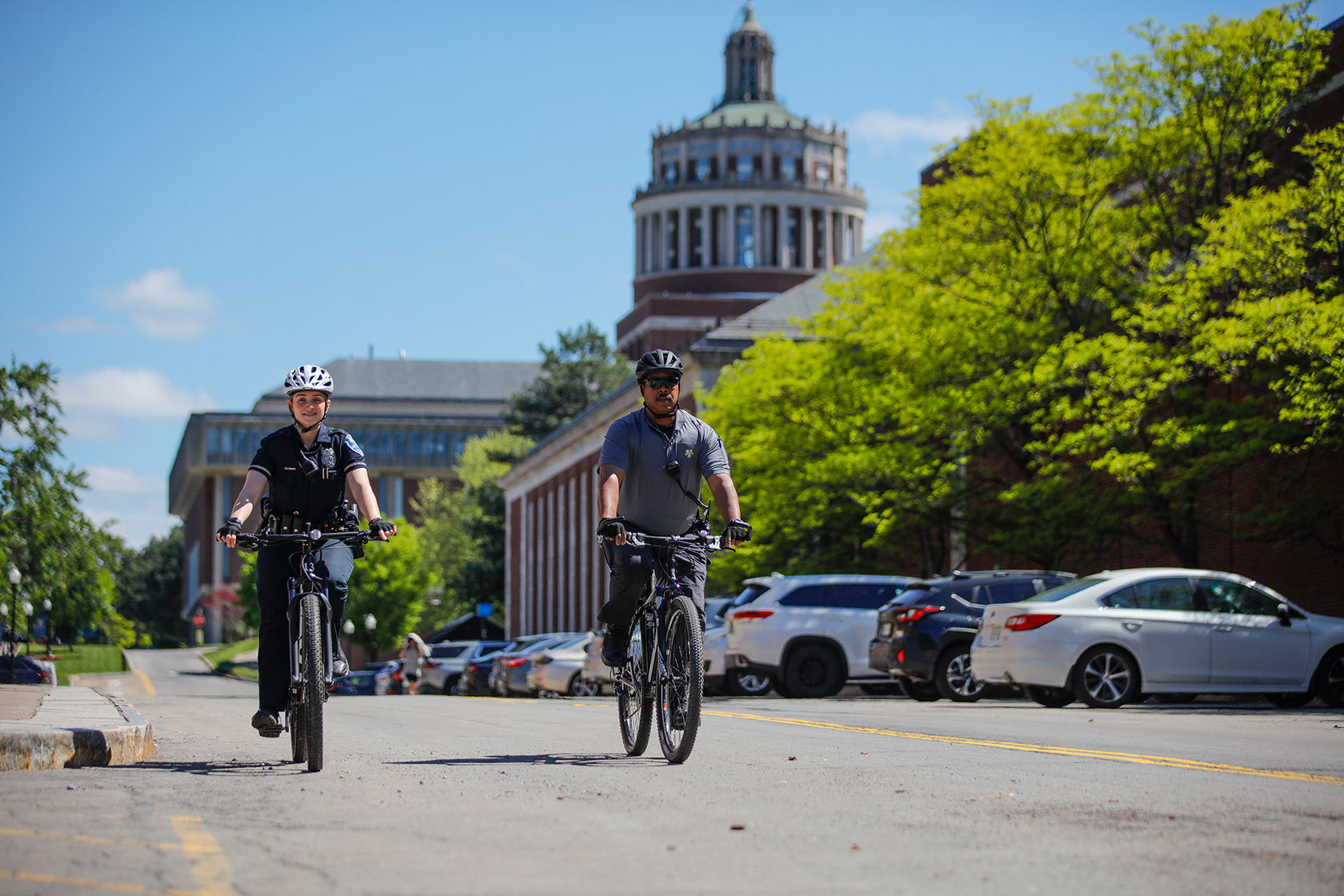
Protecting and supporting our community
News and messages
Explore announcements and updates from the University of Rochester Department of Public Safety.
Welcome to the University of Rochester Department of Public Safety (DPS). We look forward to working with you to make your experience here safe, positive, and meaningful. Please explore our website to learn more about our team, services, and how we maintain safety on our campuses.
Quchee Collins leads as associate vice president of public safety
Quchee Collins (pronounced Q-hee) is the University’s first associate vice president of Public Safety and chief Public Safety Officer, bringing fresh ideas and a wealth of experience to our campuses. In this 2-minute video, Chief Collins describes his vision for the future of public safety on campus, weighs in on effective leadership and emphasizes the importance of building community.
